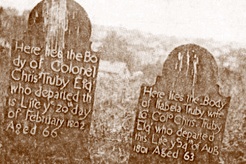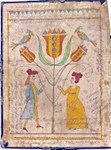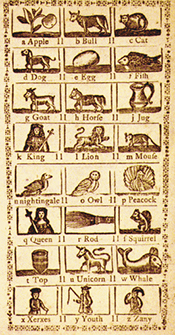A Century and a Half of Pittsburg and Her People, Volume 3 by Lewis Publishing Company
. . .Christopher Truby of Holland, was naturalized in the Pennsylvania Supreme Court held at Philadelphia, the 25th, 26th and 27th days of September, 1740,
having resided the space of seven years and upwards in his Majesty's colonies in America.
Christopher Truby, the second, was born in 1736, in Bucks county, Pennsylvania, of which county his father is recorded as a resident at the time of his naturalization. About 1771 Christopher Truby, the son, moved to Bedford, now Westmoreland county, Pennsylvania, and settled upon land which subsequently became a portion of the site of the town of Greensburg, the county seat of Westmoreland county. In 1774 he was commissioner for the county, and on June 11, 1777, was commissioned one of the justices of the peace for Westmoreland county.
In February, 1778, he was captain in the Westmoreland Militia, and throughout the Revolution was the owner of a blockhouse, or fort, erected upon his premises in Hempfield township, which was occupied by his family and neighbors as a refuge from the enemy. From this building scouting expeditions against the Indians were frequently sent.
August 18, 1784, Christopher Truby was re-elected justice of the peace, and was made judge of the court of common pleas of Westmoreland county. In 1790 he served with the rank of lieutenant-colonel in General Harmar's campaign against the Indians, commanding, in association with Major Paull, the battalion of Pennsylvania Militia. He was one of the signers of a letter addressed to General Jackson by the inhabitants of Westmoreland county.
The records of the Pennsylvania land office show Christopher Truby to have been the owner of three tracts of land situated in Hempfield township. Westmoreland county, and acquired by purchase from the state. Two of these were surveyed on warrants granted to him, and the third on an application entered by Philip Fasselman. The earliest of the warrants is dated August 16, 1784, and was issued for a tract consisting of two hundred and seventy-four acres adjoining the lands of Dewalt Mechlin and Philip Kuhns. The second warrant is dated December 5, 1785, and the land for which it was granted was surveyed December 5, 1787. It comprised two hundred and two acres situated on the banks of a branch of Sewickley creek, and adjoining the lands of William Jack and others. The warrant for this tract included an improvement made in 1772. Greensburg was laid out upon land owned by Christopher Truby and General William Jack, who contributed for the nominal sum of six pence ground for the erection of a court-house and prison.
Christopher Truby married before leaving his native county Isabella Bowman, and seven children were born to them: Michael, of whom later; Christopher, Jacob, John, and three daughters. Christopher Truby, the father, died February 20, 1802, and is buried in the German cemetery, Greensburg. A stone at the head of his grave bears the inscription:
Here lies the body of Colonel Christ. Truby, Esq., who departed this life ye 20th day of February, 1802, Aged 66.
Beside him lies the body of Isabella, his wife, who died August 24, 1801, aged sixty-three years.
Michael Truby, son of Christopher and Isabella (Bowman) Truby, while still a boy served with his father in the Westmoreland Militia, acting as drummer whenever the company was called into action. Beyond this fact nothing seems to be known of him except that he was the father of a son. also named Michael. This Michael Truby, the second, was a blacksmith, following his trade at Kittanning, Pennsylvania. He was a Whig and a member of the German Lutheran church. His wife was Mary Schreckengost, and the following were their children:
Henry, married to Lawless;
Daniel, married to Sarah Schreckengost;
Philip, married to Phoebe Reynolds;
Eve, to Jacob Buckley; Levina, to Jacob Raireck;
Rebecca, to Andrew Waugaman;
Susannah, to Solomon Altman, and
Isabella, to Samuel Elgin.




